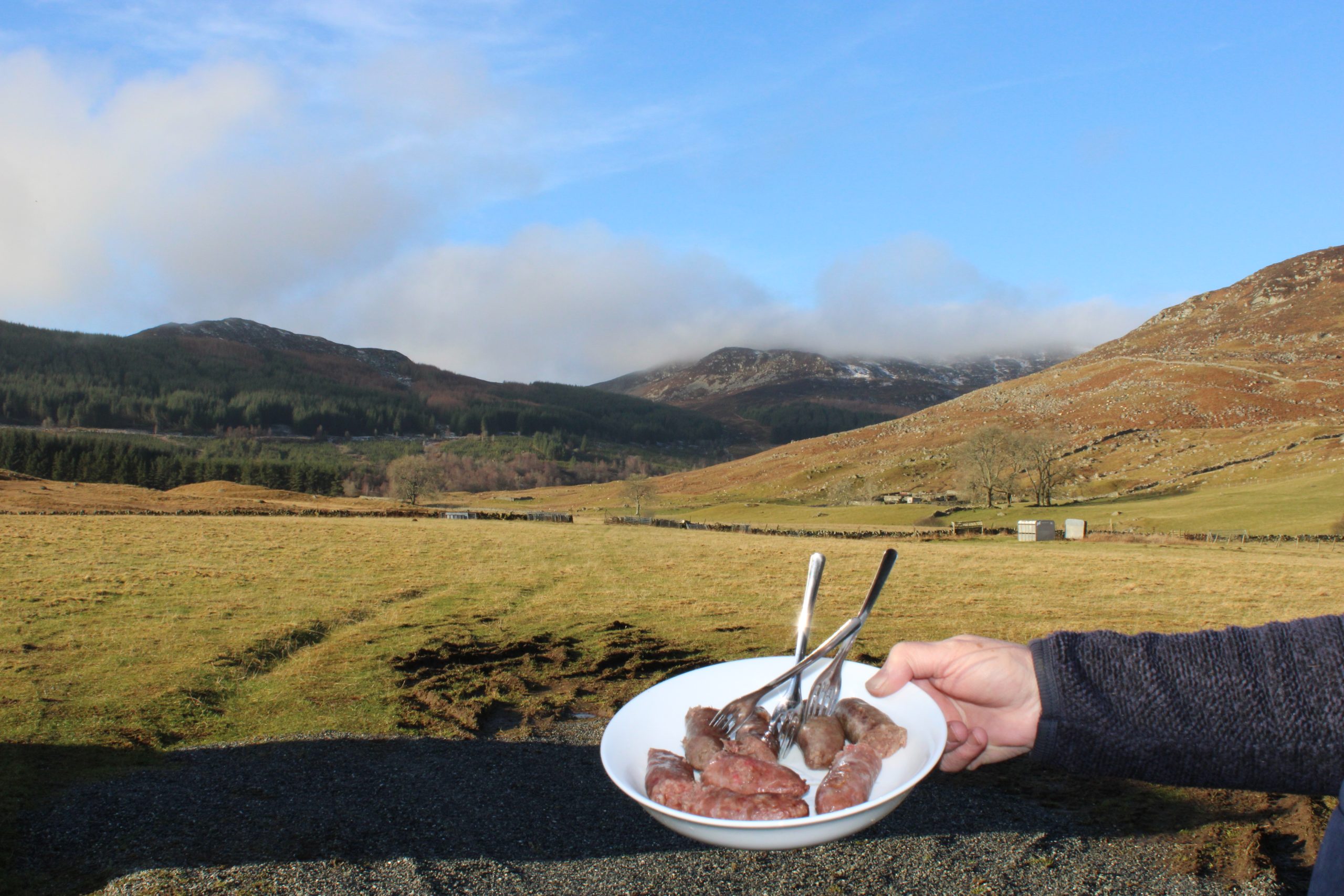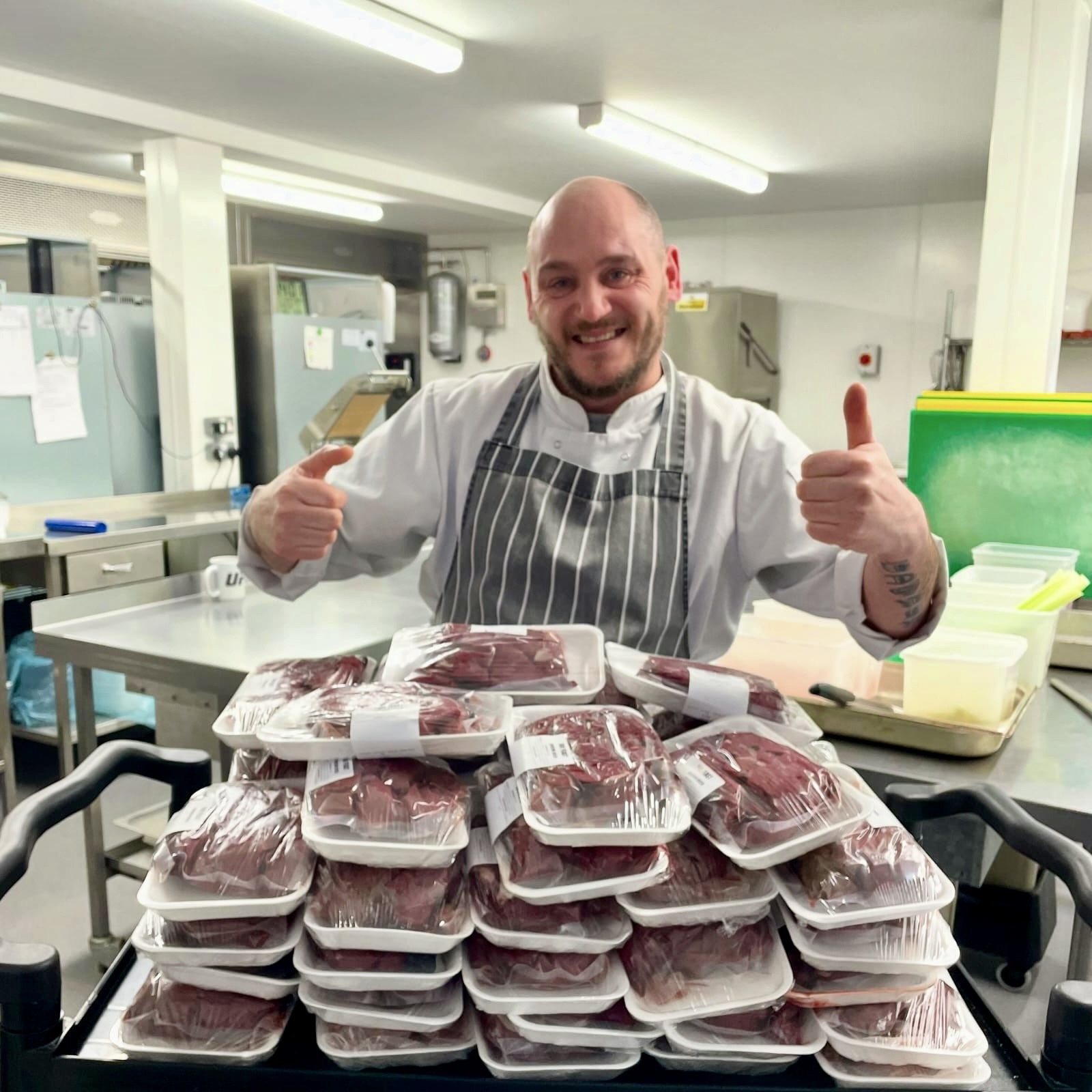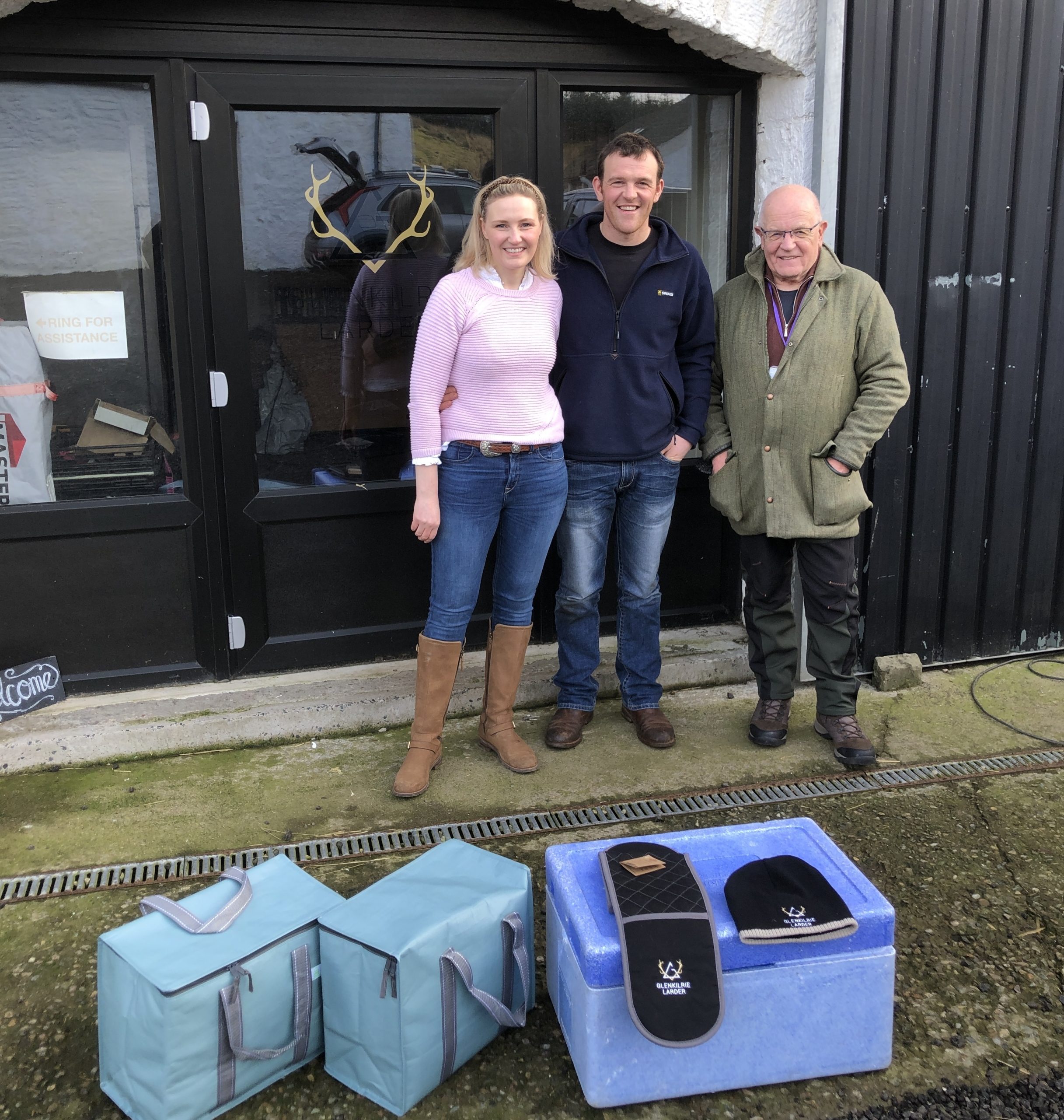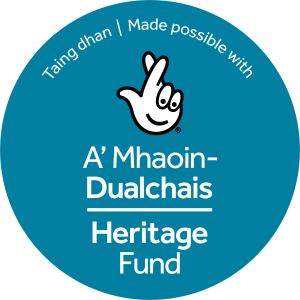Deer larder project to deliver 360-degree benefits addressing agricultural and social challenges in and around Cairngorms National Park.
21st February 2025

An innovative project led by the Park Authority and two farming families will address damage to farms and fragile habitats caused by high deer densities. The project will benefit food banks and schools through regular donations of prepared protein-rich wild venison. It will also foster a local, low food miles market for venison and create training opportunities and rural jobs.
The project, part of the Cairngorms 2030 programme, supported by The National Lottery Heritage Fund, also aims to inspire land managers and groups in other parts of rural Scotland and beyond, to solve critical land management challenges whilst simultaneously benefitting local communities and businesses.
Sandy Bremner, Convener at the Cairngorms National Park Authority, said: “This is an exciting project that will help farmers tackle a long-running problem, support the wider community, and preserve fragile habitats. There’s great potential for it to be rolled out further, and we are already looking at other areas that would benefit.”
Mike Cottam, project lead at the Cairngorms National Park Authority, said: “This a truly collaborative approach to solving rural challenges, which came to life thanks to the West Grampian Deer Management Group together with the drive and expertise of the farming families involved. It has deeply considered the needs and skills of those involved and it is off to a flying start.”
The two farms involved, Glenkilrie near Blairgowrie and Knockbarry near Pitlochry, were awarded a grant to purchase and manage the deer larders, from which deer culled in and around the National Park will be butchered. A significant proportion of the venison processed – including lean and easy to cook mince, meatballs, burgers, and sausages – will be donated to foodbanks, local schools, and community kitchens. Importantly, to ensure the project becomes financially self-sustaining, venison from the larders will be sold to local retail outlets, hotels, and restaurants through already established routes to market forged by the farming businesses involved.
Wild venison sausages from the Dalnagarn Larder at Knockbarry Farm
Helen Stewart’s family has been farming Knockbarry Farm near Pitlochry for over 400 years. Mrs Stewart, project partner, has established a social enterprise called Fair Feast to facilitate substantial and consistent venison donations. Fair Feast has already donated quarter of a tonne in venison products to the local community and is on track to deliver four tonnes annually. Mrs Stewart said: “We experienced agricultural damage from an extremely high deer density (47 per square kilometres, almost five times over the recommended maximum) on the farm. We wanted to find an ethical and sustainable way to reduce deer numbers. By developing Fair Feast, we found a way to reduce environmental damage and provide a new permanent supply of lean nutritional protein for those in food insecurity.
“With the support of the Cairngorms National Park Authority and The National Lottery Heritage Fund we have setup an on-site deer larder and butchery. We now have a full-time master butcher working to produce venison sausages, burgers, mince, meatballs, and stew. Fair Feast is financially self-sufficient as we sell the tenderloin steaks to finance the butchering and donation process. The tagline is ‘sales matched in food bank donations’, so the public know that by buying Fair Feast they can power social change in their local community.”
Mark Balfour, chef at Giraffe social enterprise in Perth receives a donation of venison from Dalnagarn Larder at Knockbarry Farm.
Glenkilrie Farm has been owned by the Houstoun family for 67 years. Andrew farms in partnership with his father David and mother Morag. Lauren Houstoun, owner of Glenkilrie Larder, said: “This project is such a fantastic initiative set out by the National Park, allowing our business to utilise the wild red deer, adding value for everyone involved. Population of deer herds are rising and agricultural damage increasing and in turn these fantastic animals are starting to be viewed as pests. We are thrilled to be able to put a positive spin on the situation and show what a valuable commodity the deer really are. We are focused on creating a strong network to allow schools across Scotland access to this delicious, high protein, low fat meat. We’re currently donating the venison for use in home economics classes and ultimately hopeit can be used on school menus in future. We are working with Developing the Young Workforce to provide all the venison required for their Hill to Grill Workshops, as well as individual schools. The positive response to this project to date is so exciting and we cannot wait to see the benefit this will have for school children across the country.
“Last year we opened Glenkilrie Larder Cook School at the farm. We plan to not only donate meat to schools but will also invite school groups to learn all about deer and how to cook this fantastic meat. We are passionate in our efforts to make sure children know where their food comes from.”
Venison ready to be delivered to home economics departments in National Park schools. Left to right: project partners Lauren Houstoun and Andrew Houstoun from Glenkilrie Larder with Mike Cottam, project lead at the Cairngorms National Park Authority.
Over the past 12 months, the Cairngorms National Park Authority has begun work delivering Cairngorms 2030, a programme of 20 projects working across a range of issues that will see the Cairngorms become the first net zero National Park in the UK, all while empowering the people who live and work here to tackle the nature and climate crisis.
Main image of Helen Stewart by Rupert Shanks.
The Cairngorms 2030 programme is made possible by The National Lottery Heritage Fund, thanks to National Lottery players.



